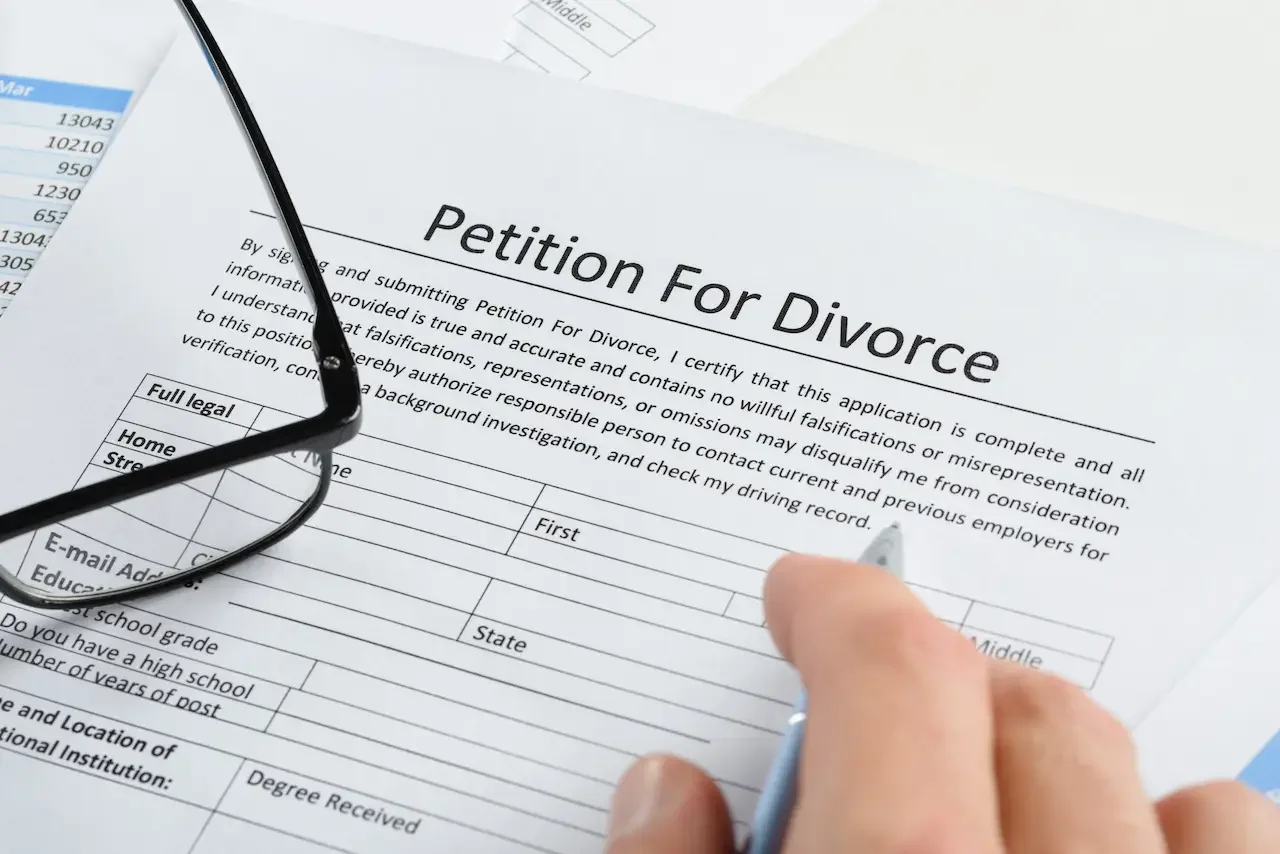
How to Get a Divorce in NC Without Waiting a Year: Understanding Your Options
If you’re considering divorce in North Carolina, you’ve likely heard about the state’s mandatory one-year separation requirement. This waiting period can feel overwhelming, especially when you’re ready to move forward with your life. While North Carolina’s divorce laws are strict, understanding how to get a divorce in NC without waiting a year and knowing your legal options can help you navigate this challenging time more effectively.
Understanding North Carolina’s One-Year Separation Requirement
North Carolina is one of only 16 states that requires a mandatory separation period before granting a divorce. To be eligible for divorce in North Carolina, couples must have lived separate and apart for at least one year and a day, with at least one spouse intending for the separation to be permanent during that time.
This separation requirement means more than just sleeping in different bedrooms. Separation requires living in different households, not simply in different rooms within the home. The clock starts on your separation date, not the date you file for divorce, so it’s important to establish when your separation officially began.
Can You Really Get Divorced Without Waiting a Year?
The short answer is: in most cases, no. North Carolina only allows for no-fault divorce, which requires at least one year of separation. Unlike some other states that recognize fault-based grounds for immediate divorce, North Carolina maintains this strict waiting period with very limited exceptions.
However, there are a couple of rare exceptions to be aware of:
Exception 1: Incurable Insanity
North Carolina allows divorce based on incurable insanity if spouses have been living apart for at least three years because of one spouse’s mental health condition, with that spouse either having been institutionalized during that time or found “insane” by a judge at least three years ago, requiring testimony of two specialty doctors that the spouse is currently “incurably insane”. This ground for divorce is extremely rare and requires substantial medical and legal documentation.
Exception 2: Divorce from Bed and Board
While not technically a full divorce, a divorce from bed and board is a court-ordered separation available only under limited circumstances where one spouse can prove serious fault, such as adultery or drug abuse. This is similar to a legal separation and can help you address immediate concerns like spousal support and living arrangements, but you’ll still need to wait one year after separation to file for an absolute divorce that legally ends the marriage.
What About Waiving the Waiting Period?
Some people consider petitioning the court for a waiver to bypass the year-long wait time, but granting this waiver is entirely up to the court’s discretion. These waivers are extremely rare and typically not granted. Courts in North Carolina take the one-year separation requirement seriously, as it serves multiple purposes including providing time for potential reconciliation.
Important Warning: Some spouses choose to lie and claim they have been living separately for a year, as the court does not generally require proof of separation, but this is not advised because lying to the court is a criminal offense.
Making the Most of Your Separation Period
Since you cannot bypass the one-year waiting period in most circumstances, it’s important to use this time productively. Here’s how:
Establish Your Separation Date
When you file for divorce, you will state in the papers that you meet the separation requirements, and your word is typically good enough. However, it’s wise to keep documentation such as:
- Rental agreements or mortgage documents showing separate addresses
- Utility bills in your name only
- Bank statements showing financial separation
- Driver’s license with your current address
Avoid Resetting the Clock
Any reconciliation during your separation period will reset the one-year clock. This means if you and your spouse decide to try living together again, you’ll need to wait another full year from the new separation date before filing for divorce.
Address Other Issues During Separation
You don’t have to wait until after divorce to resolve important matters. During your separation, you can:
- Create a separation agreement covering property division, spousal support, child custody, and child support
- File for post-separation support if you need financial assistance
- Request temporary custody arrangements for your children
- Begiements for Filing for Divorce in North Carolina
Once your one-year separation period is complete, you’ll need to meet these additional requirements:
- Residency Requirement: Either you or your spouse must currently live in North Carolina and must have lived in the state for at least six months before the divorce case is filed.
- Intent to Remain Separated: At least one spouse must have intended for the separation to be permanent for the entire year.
- Living in Separate Residences: You must have lived in different homes throughout the separation period.

How Fast Can the Divorce Process Move After One Year?
Once the one-year waiting period has passed, an uncontested divorce can happen relatively quickly, with an uncomplicated divorce able to be finalized in as little as 15 days after the initial divorce filing, though most divorces are finalized within 120 days.
After filing your divorce complaint:
- Your spouse has 30 to 60 days to respond
- If uncontested, you can schedule a hearing shortly after
- Simple divorce hearings are usually very quick
- You may leave court with your divorce judgment the same day
Types of Divorce in North Carolina
Absolute Divorce
This is a complete dissolution of marriage. It’s the final legal ending of your marital relationship and allows both parties to remarry if they choose.
Divorce from Bed and Board
This is North Carolina’s version of legal separation. It’s a fault-based action that doesn’t actually end the marriage but provides court-ordered separation and can address issues like spousal support and child custody while you wait for the one-year period to pass.
The Purpose Behind the Waiting Period
The purpose of the one-year separation period in North Carolina is to ensure the couple is invested in the divorce process and is intent on dissolving the marriage. While this waiting period can feel frustrating, it serves several functions:
- Provides time for potential reconciliation
- Allows couples to work out property division and custody arrangements
- Ensures both parties are certain about their decision
- Gives time to prepare financially and emotionally for divorce
Working with a Divorce Attorney
Even if your divorce seems straightforward, consulting with an experienced family law attorney is invaluable. An attorney can:
- Help you understand your rights and obligations
- Ensure your separation date is properly established
- Draft a comprehensive separation agreement
- Protect your interests in property division and custody matters
- Guide you through the divorce process efficiently once the year has passed
- Advise you on financial planning during separation
Moving Forward
While North Carolina’s one-year separation requirement cannot be bypassed in most circumstances, understanding the process and using your separation time wisely can help you transition more smoothly into your post-divorce life. The key is to be patient, document your separation properly, and work with legal professionals to ensure your rights are protected throughout the process.
Remember that while the waiting period may seem long, it provides an opportunity to carefully plan your future, resolve important issues, and ensure that divorce is truly the right decision for your circumstances.
Frequently Asked Questions (FAQs)
Q: Do I need to file paperwork to be legally separated in North Carolina?
A: No, you do not need to file any forms for separation in North Carolina. You become legally separated simply by living in separate residences with at least one spouse intending for the separation to be permanent. However, having a written separation agreement can be helpful for documenting your separation date and settling important issues.
Q: Can I get divorced faster if my spouse agrees to the divorce?
A: No. Even if both spouses agree to the divorce and there are no contested issues, you still must wait the full one-year separation period. As long as you are eligible for a divorce, your spouse does not have to agree to the divorce, but mutual agreement doesn’t eliminate the waiting period either.
Q: What if we reconcile during the separation period?
A: Any reconciliation that involves resuming marital relations or living together will reset the one-year clock. You would need to separate again and wait another full year before filing for divorce.
Q: Can my spouse prevent me from getting divorced?
A: Your spouse cannot prevent you from getting divorced as long as you meet the eligibility requirements. Once you’ve been separated for one year and meet the residency requirements, either spouse can file for divorce regardless of whether the other spouse agrees.
Q: What if my spouse moved out of North Carolina?
A: You can get a divorce in North Carolina no matter where your spouse lives, as long as you live in North Carolina at the time you file for divorce and have lived in North Carolina for the six months immediately before filing.
Q: Do I need proof of our separation?
A: No, you do not need proof of separation, as your word is typically good enough when you file for divorce and state in the papers that you meet the separation requirements. However, it’s wise to keep documentation like rental agreements, utility bills, and bank statements in case your spouse contests the divorce.
Q: Can we live in the same house but be legally separated?
A: No, you cannot be separated while continuing to live in the same house, as the husband and wife must reside at different residences to be considered separated.
Q: Will sexual relations during separation reset the clock?
A: North Carolina law does not consider isolated instances of sexual intercourse during separation as proof of non-separation or as something that stops the clock on the one-year requirement. However, if you resume living together or have a pattern of marital behavior, this could affect your separation status.
Q: How much does it cost to get divorced in North Carolina?
A: Divorce costs vary widely depending on whether your divorce is contested or uncontested. Filing fees are typically a few hundred dollars, but attorney fees can range from $1,000 for a simple uncontested divorce to $15,000 or more for complex contested divorces involving significant assets or custody disputes.
Q: Can I date other people during the separation period?
A: Legally, you’re still married during the separation period, so dating could have implications, particularly if you’re seeking alimony. North Carolina law considers adultery (which technically includes any sexual relationship before you’re divorced) when deciding alimony issues. It’s best to consult with your attorney about how dating might affect your specific situation.
Q: What’s the difference between marital property and separate property?
A: Assets or debts either spouse had before the marriage are generally “separate property” belonging to that spouse and will not be divided, while assets and debts acquired during the marriage are generally classified as “marital property” and may be divided. Exceptions include inheritances and gifts received from third parties during the marriage.
Q: When should I file for post-separation support?
A: You can file for post-separation support any time after you separate and before the divorce is finalized. This temporary financial support can help the dependent spouse meet their reasonable needs while waiting for the divorce to be completed.
Q: Can I get custody of the children before the divorce is final?
A: Yes. You can file for custody at any time after separation. You don’t need to wait until the divorce is finalized to establish custody arrangements, child support, or visitation schedules.
Q: How is property divided in a North Carolina divorce?
A: Assets and debts in a divorce are divided according to equitable division, which in most instances gives each spouse equal ownership over all marital property, with everything generally divided 50/50, though equitable does not necessarily mean equal, so a spouse may be awarded more or less if there is a valid justification.
Q: Can I change my name back after divorce?
A: You can include a request to resume your maiden name in your complaint for divorce and have the name change ordered in your divorce judgment, or you can file an application to resume your former name with the clerk of court.
Q: Is there a waiting period to remarry after divorce?
A: There is no mandatory waiting period before you can remarry in North Carolina. Once your divorce is finalized, you’re free to remarry immediately.
Q: What if I can’t afford an attorney?
A: Legal Aid of North Carolina offers assistance to low-income individuals. They provide do-it-yourself divorce packets with forms and instructions for simple, uncontested divorces. However, if your divorce involves property division, spousal support, or contested custody issues, seeking legal representation is strongly recommended.
Q: Can adultery affect my divorce?
A: While adultery cannot eliminate the one-year separation requirement, it can significantly impact alimony decisions. If the dependent spouse committed adultery before the date of separation and the other spouse can prove it, the dependent spouse is not entitled to alimony, but if the supporting spouse committed adultery before the date of separation and the other spouse can prove it, they must be ordered to pay alimony.